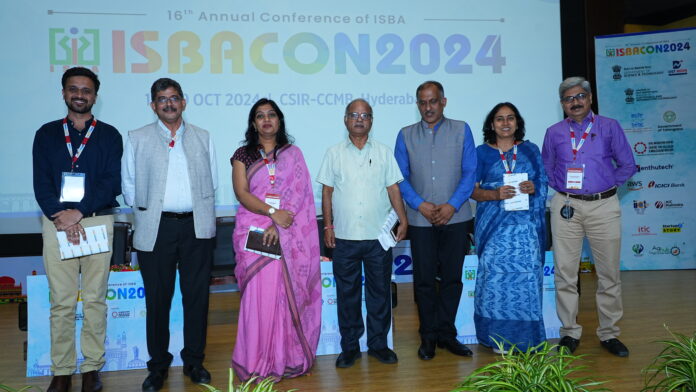Resource Challenges by 2050:
Addressing Food Security Without Sacrificing Forests
One significant challenge is food security. The natural response to increased food demand might be to expand agricultural lands, but this comes at a high environmental cost. Forests, which play a vital role in climate regulation, would be compromised, further exacerbating climate change. The solution lies not in expansion but in innovation. Enhancing agricultural productivity and minimizing waste are essential strategies for sustainable growth. This approach requires integrating advanced technologies and practices that increase efficiency without expanding farmland.
Biotechnology as a Key Player in Sustainability
The spotlight now shines on biotechnology and bio-based processes as essential tools for addressing these sustainability challenges. The potential for biotechnological advancements in fields such as organism engineering and enzymatic process innovations opens doors to novel solutions that move away from traditional, resource-intensive chemical processes. This shift not only paves the way for cleaner, more efficient production but also fosters a new wave of eco-friendly breakthroughs.
The Importance of Making Sustainable Choices
A central question remains: are we making the right decisions today to face tomorrow’s challenges? The balance between productivity, conservation, and innovation must be scrutinized. Should we be focusing solely on ramping up production, or should we take a more nuanced approach that prioritizes reducing food waste and improving yield efficiency? These choices will determine our capacity to sustain future generations.
Insights from Industry Leaders at IKMC
This topic took center stage at the recent IKMC event, where prominent panelists shared their insights:
- Archana, a former student of CCMB who has successfully transitioned into entrepreneurship in the healthcare and diagnostics sector, highlighted the critical role biotechnology plays in developing solutions for unpredictable infectious diseases. She emphasized that today’s diagnostics need to be robust and adaptable, covering a vast range of pathogens due to the rapidly evolving nature of diseases.
- Mrityunjay, who began his career as a scientist and now supports startups, underscored that groundbreaking innovation isn’t exclusive to metropolitan hubs. Drawing from his experience in building a thriving incubation ecosystem in Odisha, he provided compelling examples such as Azure X Technologies, an AI-driven health tech startup, and Nexus Power, a company making organic batteries from crop residues. These success stories exemplify how a well-structured incubation system with strong mentorship and resources can foster significant breakthroughs, even in less expected locales.
- Dr. Yogeshwar Rao, known for his extensive work with CSR and his role as an advisor, emphasized the value of business development and advisory roles in driving biotech innovation.
- Dr. Aprati Sharma, CEO of Pusak Rishi, has been instrumental in ensuring that agricultural research conducted in academic institutions is translated into practical, real-world applications. Her work highlights the necessity of bridging the gap between research and its field implementation to maximize its impact.
Building Innovation Beyond Metropolises
One of the most powerful takeaways from Mrityunjay’s session was the call for incubation leaders to recognize and nurture potential innovations from smaller cities. Contrary to conventional beliefs that breakthroughs are confined to tech-heavy cities like Hyderabad, Bangalore, or Delhi, his experiences prove that ingenuity and entrepreneurial spirit can flourish anywhere with the right support. For instance, the development of Nexus Power by twin sisters in Bhubaneswar showcases the possibility of significant advancements arising from regional initiatives.
The Power of a Collaborative Ecosystem
The success stories shared at IKMC emphasize the importance of creating a connected ecosystem where mentors, stakeholders, and institutions collaborate and support one another. This network approach ensures that resources and expertise are shared, leading to a more cohesive and sustainable startup ecosystem. The example of Bhubaneswar’s supportive framework for health and technology startups illustrates how collaboration can result in national-scale successes.




